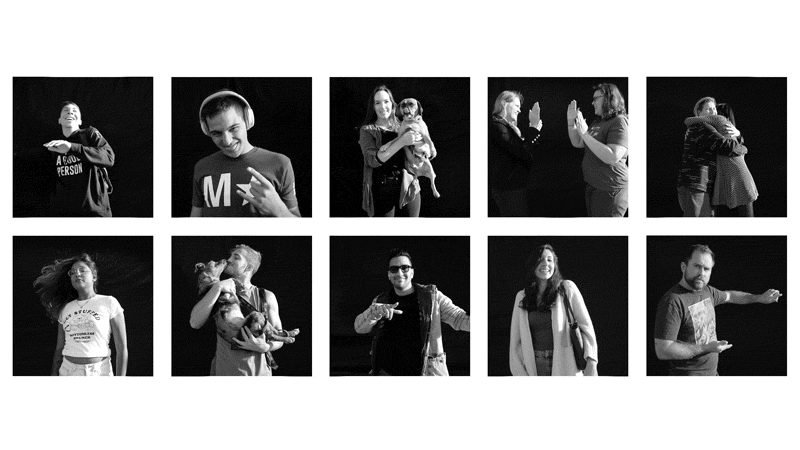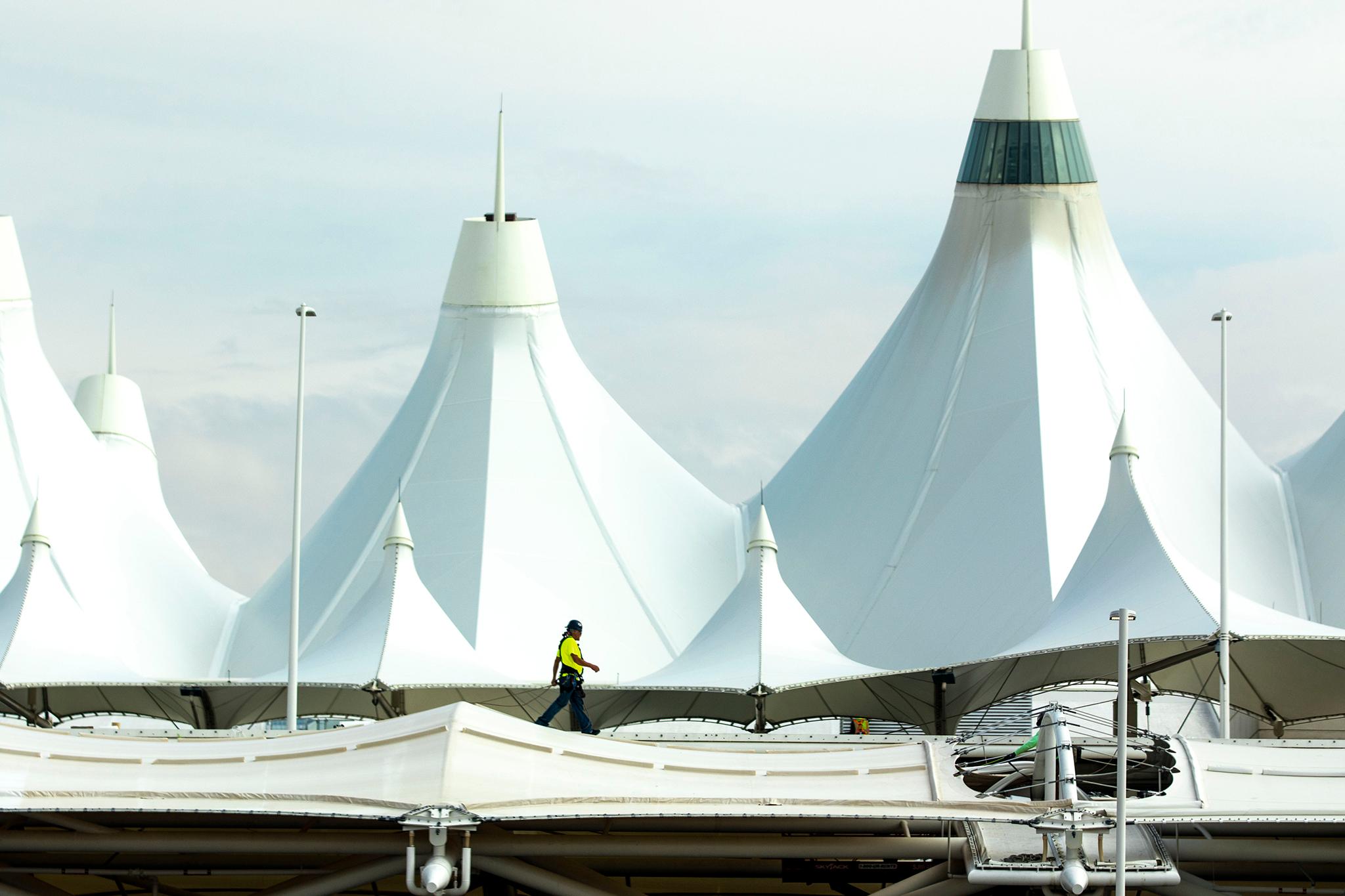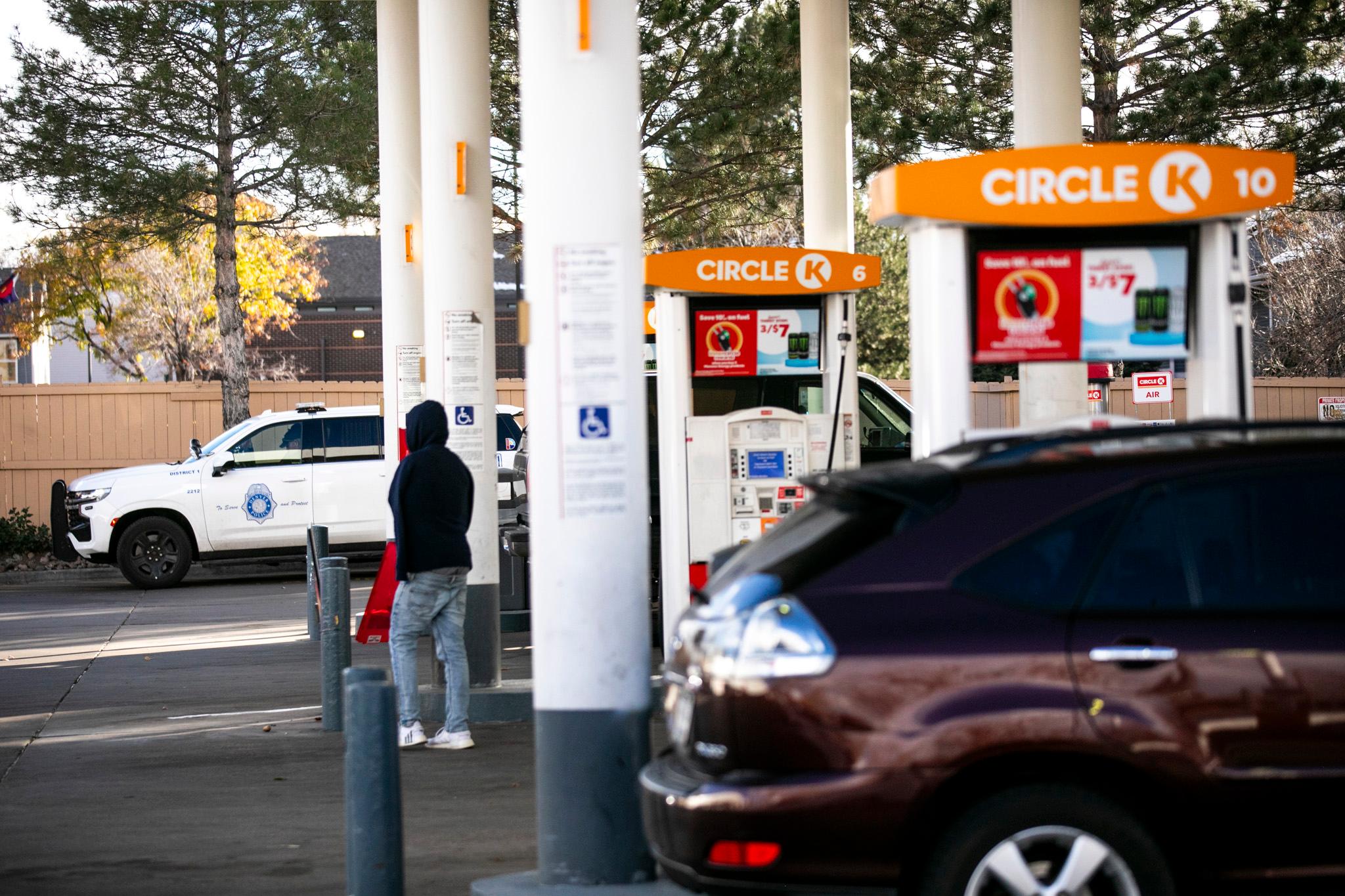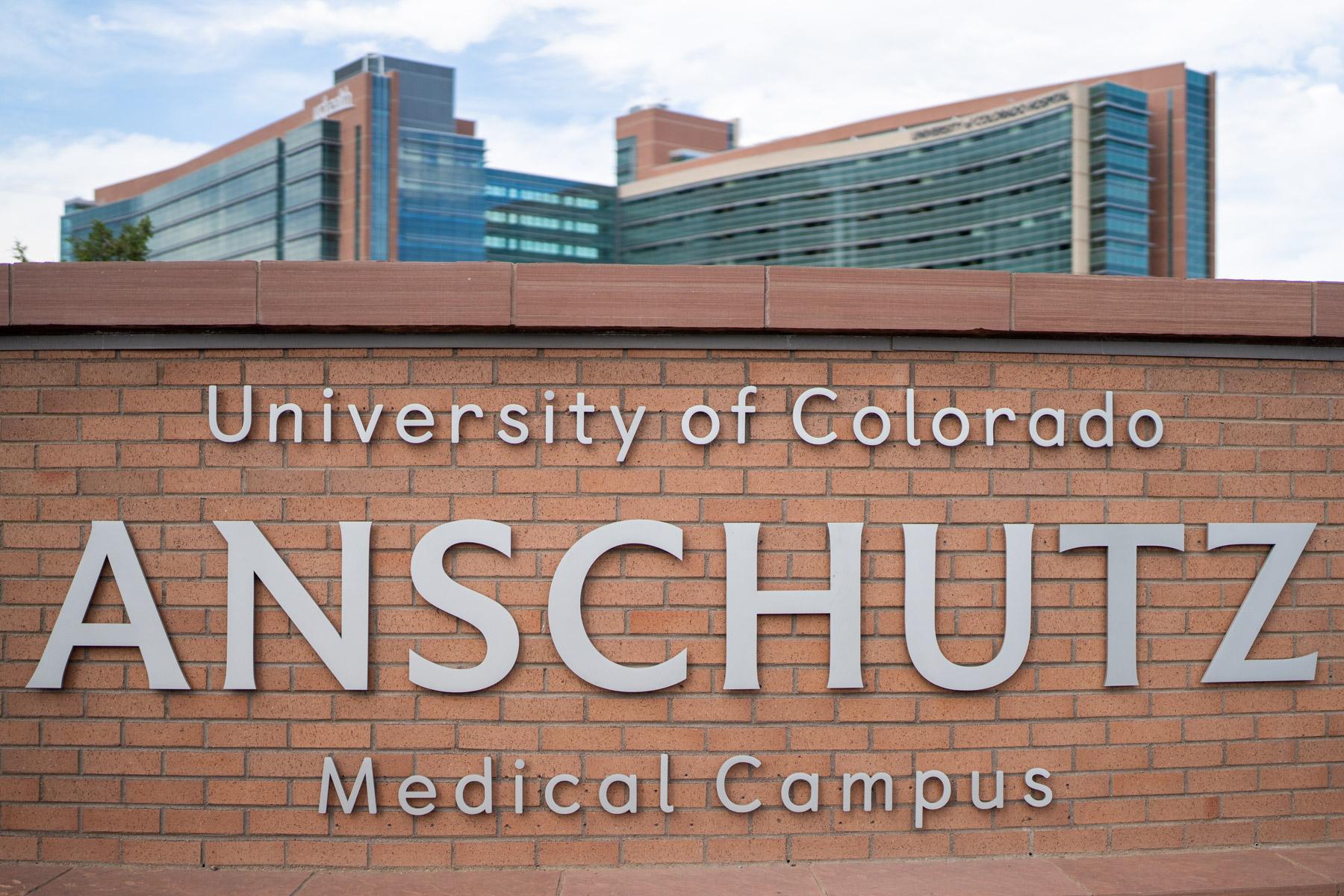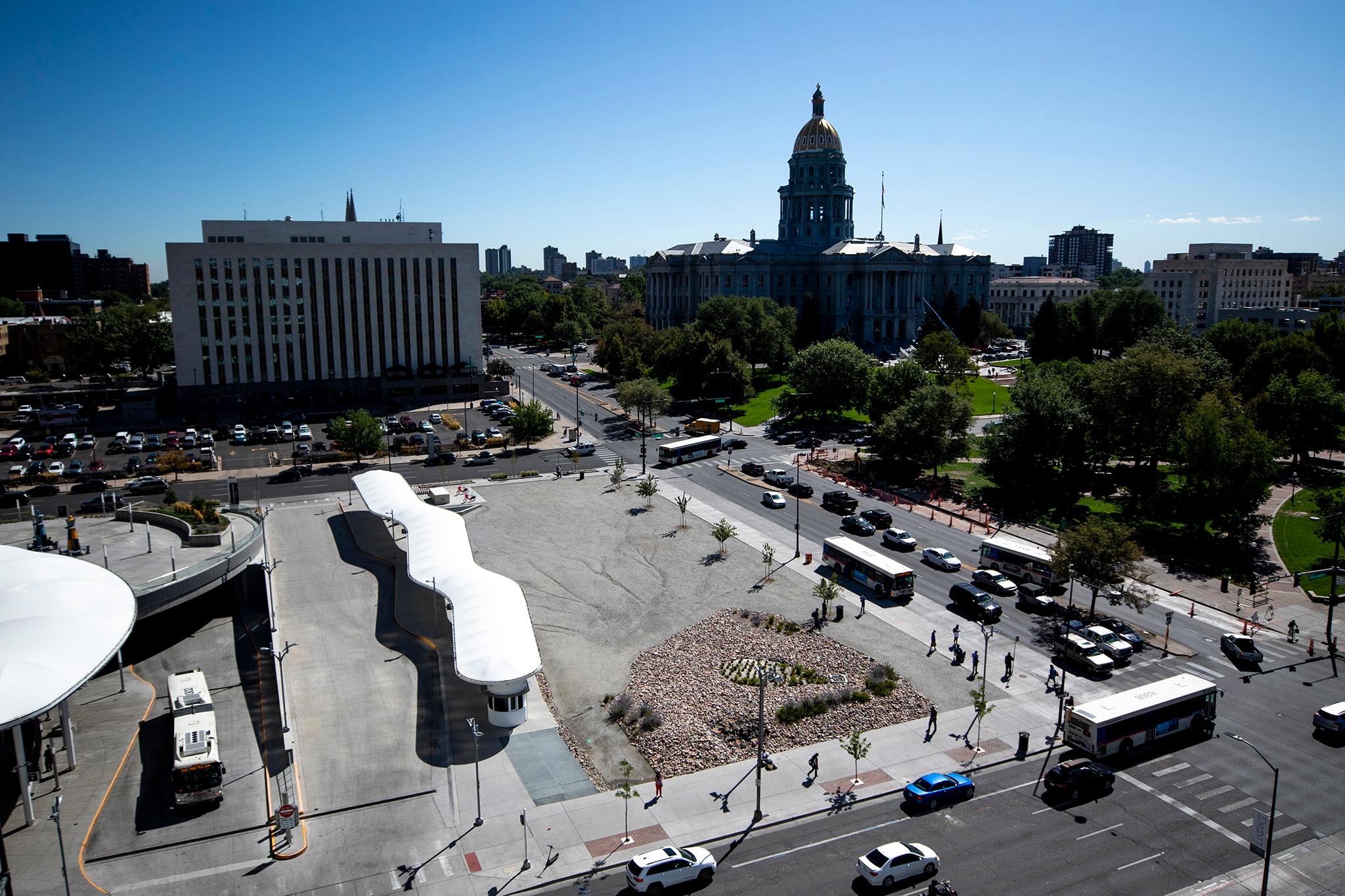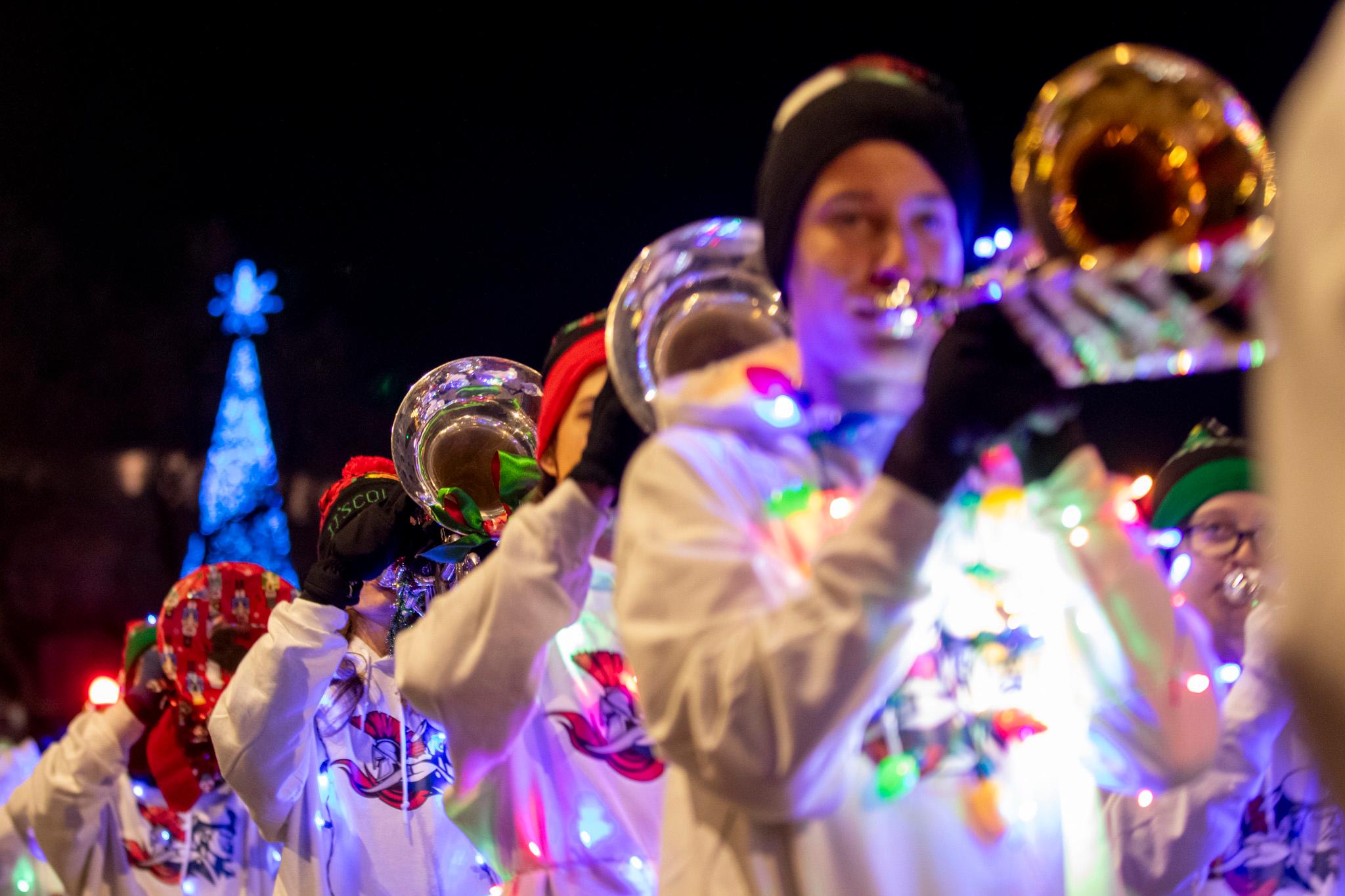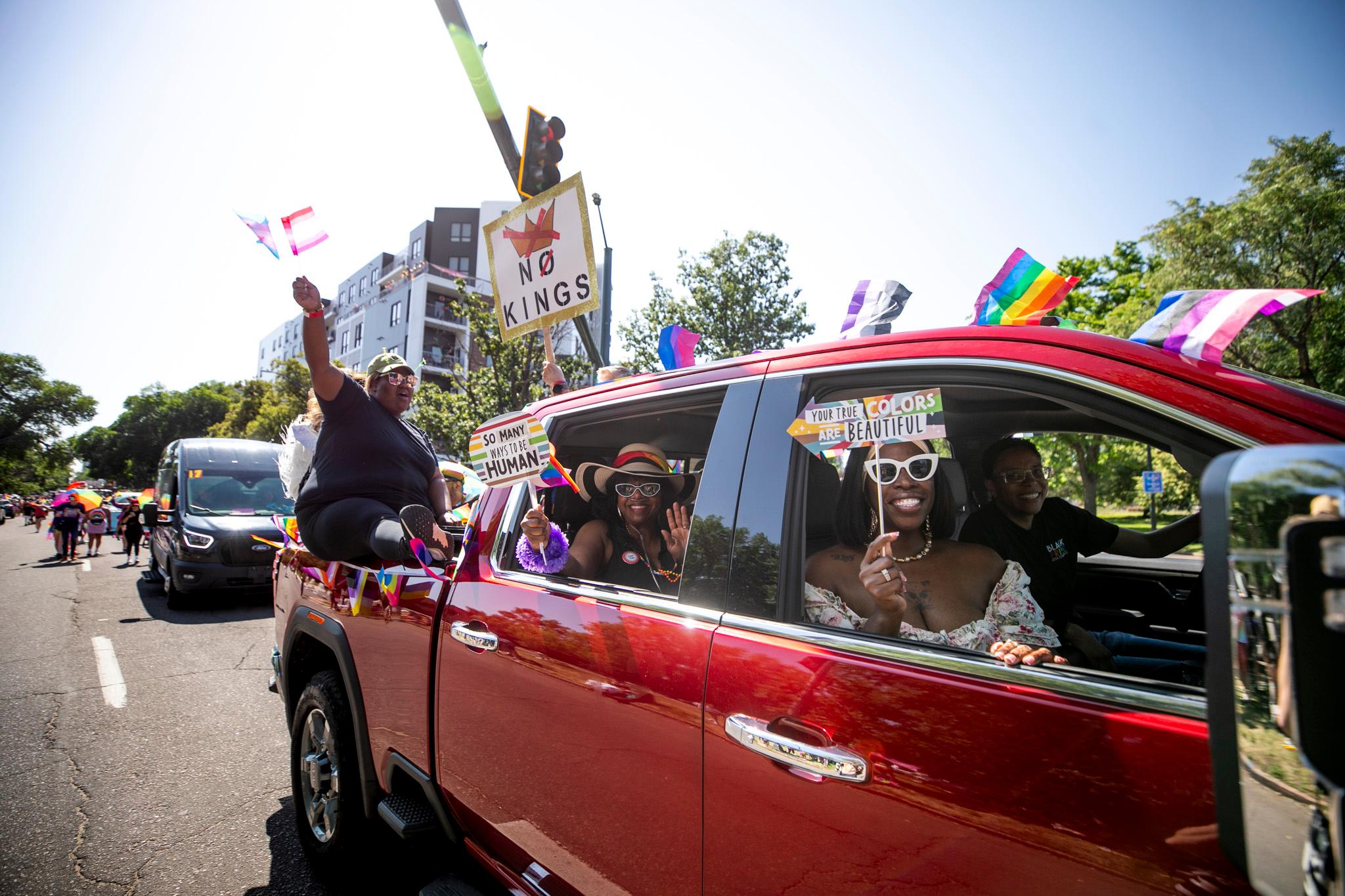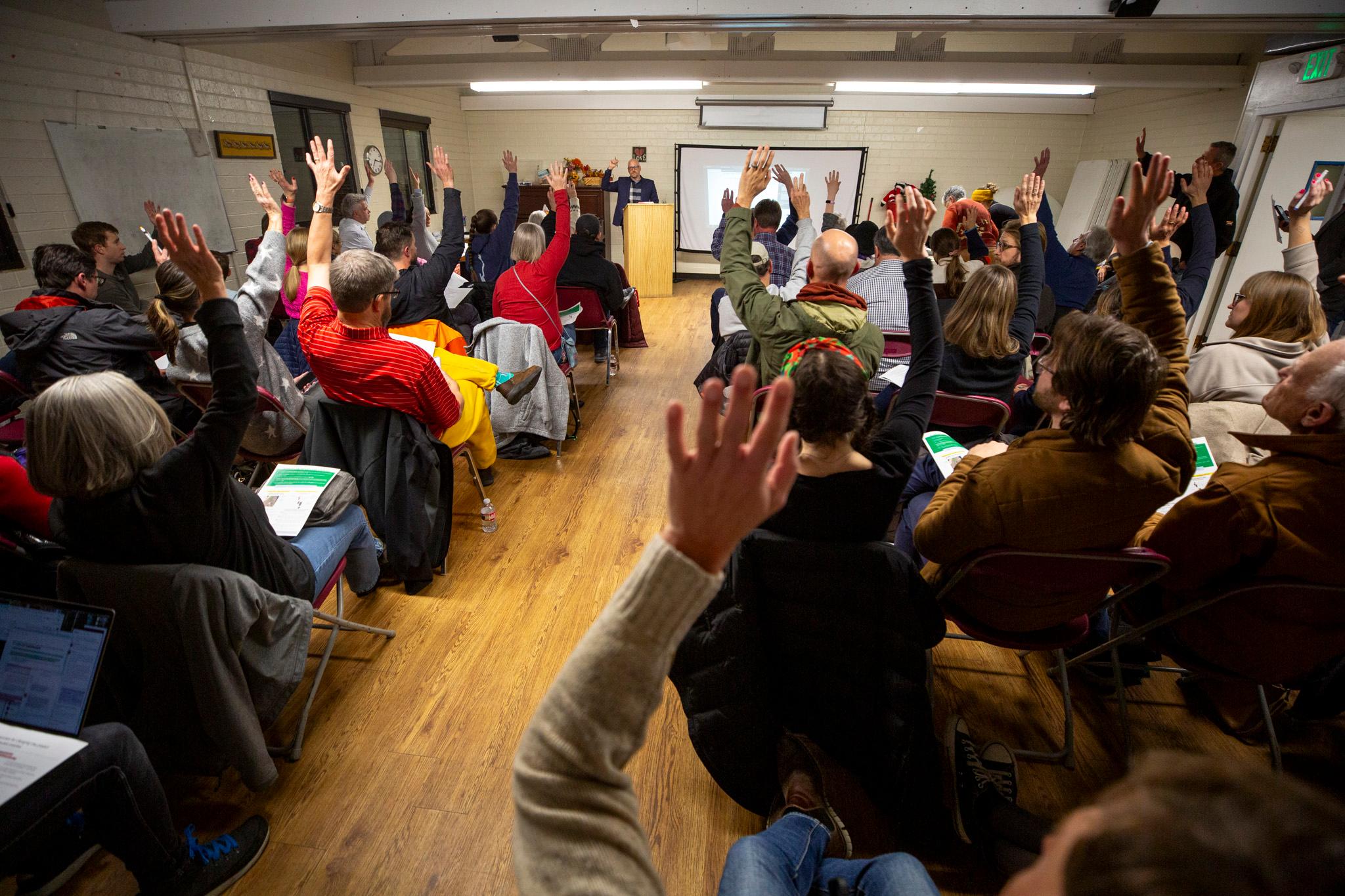Every year, Denverite holds a street week. And at the end of every street week, we post up along that street to interview random passers by about their observations of the neighborhood.
We focused this year on Brighton Boulevard, which was once industrial, once nearly declared blighted, once very arty, now home to hundreds of homes, still home to a giant oil refinery, still home to many homeless men, now friendlier to bikes, shaped by two big-personality developers, on the forefront of green infrastructure that may clean the river and the place where a once anonymous mosaic artist was found.
But there's still more to the boulevard, particularly the neighborhood that's sprung up around it in recent years. We learned a lot by chatting people up in front of The Source, in between the sidewalk and bike lane.
One big takeaway: people on Brighton are BUSY. We usually grab 20 portraits in two hours, but we were only successful in flagging down 10. For every one person who stopped, another was in too big a rush to say hello. Some were running late for reservations, some were carrying suitcases and wanted to get to their hotel, some didn't even look up as we yelled at them, kindly offering a free gif portrait.
We get it, people are busy. But it seemed a little more prevalent that say.
Maybe people are in more a New York state of mind in the western half or RiNo (technically in the Five Points neighborhood). After all, no less than three people told us it felt like Williamsburg, Brooklyn.

Renesha Yusuff, who was actually visiting from New York, was one.
"Its kind of giving me the same vibe," she said. "This is all millennial shit to me."
She also commented that the prices, at least at the Source, felt like Brooklyn, adding: "Denver should be cheaper!"
Sean Felton was another who compared it to Williamsburg. She just moved from Brooklyn, where she grew up, and that demonstrates another thing we learned about the neighborhood: there's a lot of newcomers living there.
Felton said she moved west "on a whim," looking for a change in lifestyle. She found it in Denver. She was drawn by the industrial facades enclosing cool restaurants and the like. Both she and Joe Jacobin, who recently moved here from Washington, D.C., said Lyft drivers told them that the sidewalks along Brighton were new.

"Every Uber I'm in or every Denver native has something to say about the rapid growth," Jacobin said.
Felton said she gets why long-term residents are sour about the growth. She was the "native" in Brooklyn surrounded by newcomers.
Back when Jacobin moved here, friends warned him it was in "the middle of nowhere." Now, he said, those naysayers are thinking of moving to the boulevard.

Having come from a city where the "currency" was about education and power, he's excited to live in a laid-back place that's "super young, super hip, super up-and-coming" and "super trendy."
"I love it," he said.
Sheala Lennox, who also moved to Denver from the East Coast, also loves Brighton's new look. She - really her dog, Marley - just wishes there was more grass.

Theresa Peña, who's lived in Denver her entire life, wishes there was more diversity. She was on her way to a birthday dinner but took a moment to stop and chat. She was excited for her meal on the rooftop of The Source Hotel but she said she doesn't always like what she sees in this part of town.
"I feel this sadness as I drive down here," she said. "You would think only white people live and work here."
Peña said she gets it. Change is inevitable. She just wishes the city would grow "with more sensitivity."

On the other hand, Brandon Parker, a bartender at Acorn in The Source who is also a working magician, said he sees more diversity than you might expect up here. Service industry jobs tend to give a pretty nuanced view of a neighborhood. A lot of those people who he meets, though, are out-of-towners fresh off a plane. And, without a doubt, the boulevard is "a millennial haven."
Anthony Chiarello moved to the neighborhood about a year ago from Madison, WI. He said he loves the vibes. Young people. Cool people. Breweries. He loves that he can walk everywhere.
But he was troubled by one aspect of the changes still taking place here. Looking across the street, toward an early-stage construction site, he said he was disappointed that the pedestrians of Brighton Boulevard would soon lose one of their last views of the mountains.






